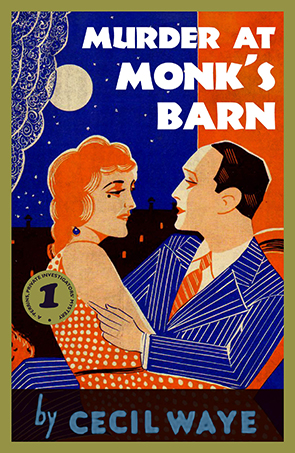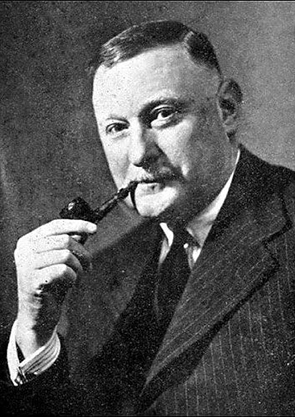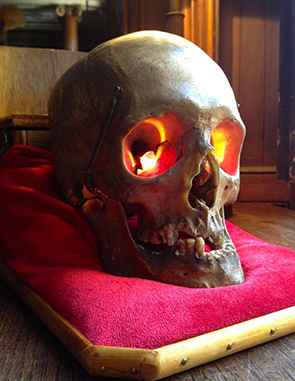Cecil Waye is one of the many pseudonyms used by Cecil John Charles Street. He was also a prolific mystery writer under the names John Rhode and Miles Burton. His best known detective is Professor Lancelot Priestly, an older, generally dry and unemotional character, under his John Rhode persona. As Miles Burton, his main detective was Desmond Merrion, a gentlemen sleuth, similar to Sayers’ Lord Peter Wimsey. And as Cecil Waye, he created the brother and sister team of Christopher and Vivienne Perrin, owners of the Perrins Detective Agency. Street was one of the founding members of the Detection Club and made a very important contribution to Club traditions - he was the creator of Eric the Skull, still used in initiation ceremonies for new members. But although he wrote many books, he is relatively unknown today. He was one of the writers I was unfamiliar with before reading the Golden Age of Murder, although I recently listened to a few of John Rhode’s short stories featuring Priestly (when I was sick recently I kept myself amused listening to the Bodies from the Library short story collections on audiobook: more Golden Age gems).
Murder at Monk’s Barn is the first case recorded for the Perrins team, although it is obvious from the book that the detective agency has been long established, with a good reputation. One of the best aspects of the book was the relationship between the Perrin siblings, and sadly, I gather that Vivienne fades out of the books after this one, and the rest feature only Christopher. That’s a pity, because it was Vivienne who works out the solution to this mystery. Hopefully, Christopher is as smart as his sister, because we didn’t get a lot of opportunity to see him at work in this one.
Anyway, this is a well-constructed mystery featuring two murders. I think I must be a little bloodthirsty, because I noticed lately that I definitely seem to prefer mysteries with more than one body. We start with the first victim being shot on the opening page and proceed with the investigation of the murder of Mr Gilbert Wynter. This is very much a locked room style murder – it is obvious that Gilbert was shot through the window while he was shaving in his dressing room on the upper floor of his house. The gun can only have been fired from the garden, but the garden is seemingly impossible to get out of without being seen (high walls, with the only exits being a locked gate or through the house). And just when there seem to be no more avenues to investigate, we get a second murder, this time with a box of poisoned chocolates. There is only a limited pool of suspects, so the story is very much focussed on only a few people. Sure, at the very beginning it seems like maybe Gilbert was shot by the recently sacked under gardener, but there are standards in Golden Age mysteries associated with class, and we all know that it is never going to the be gardener who did it!
The solution when Vivienne eventually figures it all out is very clever, even if it did strike me as a bit unlikely. The first murder is engineered using what practically amounts to a Rube Goldberg machine, and it is really quite impressive that the murderer manages to pull it off. The second murder, however, seems overly complicated and fraught with problems in ensuring that the correct victim ate the poisoned chocolates. I really can’t believe anyone would ever conceive of using such a complicated method to murder someone.
But who cares about realistic murders? I can read true crime if I want realistic murders! This is an amusing little mystery with engaging main characters and a suitably twisted and clever murder method. The pace was a little slow in the middle, which is really why I was glad for the second murder, to pick it back up again, but overall a quick read. I enjoyed it and am happy to discover another Golden Age writer whose other books I shall look out for.
 RSS Feed
RSS Feed Facebook
Facebook Instagram
Instagram YouTube
YouTube Subscribe to our Newsletter
Subscribe to our Newsletter






No one has commented yet. Be the first!